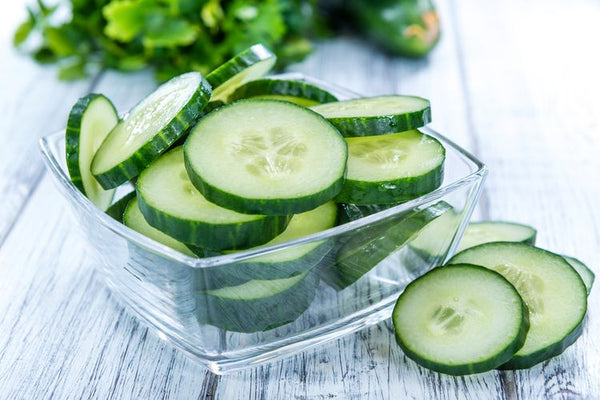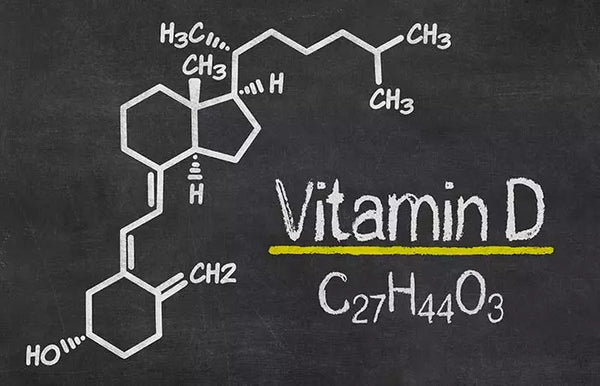
Various Kinds of Vitamins and Their Benefits

Vitamins are an important intake for the body, which is why there are many recommendations for eating vegetables and fruits, because they contain lots of vitamins in them. The following, various kinds of vitamins and their benefits?
Vitamins are organic compounds that humans need in small amounts. Most vitamins come from food because the body does not produce them or produces very little.
Each organism has different vitamin requirements. For example, humans need to get vitamin C from their diet — while dogs' bodies can produce the vitamin C they need.
For humans, vitamin D is not available in large enough quantities in the diet. The human body synthesizes vitamins when exposed to sunlight.
Each vitamin has a different role in the body, and everyone needs a different amount of vitamins to stay healthy.
This article explains what vitamins are, what they do, and what foods are good sources of each.
Various kinds of vitamins and their benefits
Vitamins are organic substances that come from food. These nutrients are needed in the body to grow, develop, and function normally.
These organisms are classified as macronutrients or micronutrients, which means the body needs them in small amounts. On the other hand, vitamin deficiency can cause certain health problems.
There are currently 13 known vitamins:
- Fat and water soluble vitamins
Fat soluble vitamins
Vitamins A, D, E, and K are fat-soluble. The body absorbs this type of vitamin through fat cells in the intestine, then distributes it to the organs through the bloodstream.
When excess amounts, the body will respond to the use of this vitamin for other functions.
However, higher levels can not last long because of excess vitamins.
Water soluble vitamins
Vitamins included in water are vitamins C and B complex (such as vitamins B1, B6, and B12).
This type of vitamin does not last long in the body and cannot be a reserve. To be used and absorbed by the body, this vitamin must be broken down with air.
The body cannot store water-soluble vitamins. When in excess, the body excretes it through urine. Therefore, people who need a regular supply of soluble vitamins are different from those fat soluble ones.
You can find this vitamin in your daily diet and in supplements if needed.
Benefits of Vitamins and Food Sources
The function and role of each vitamin is very important. This can help you balance a healthy diet and recognize the symptoms of certain vitamin deficiencies.
Here are the benefits of vitamins and their food sources:
Vitamin A —

Chemical name: retinol, retinal, including beta carotene.
- Function: Very important for eye health, strengthens immunity, and maintains certain organs and body parts.
- Disadvantages: Can cause night blindness and keratomalacia, which causes the front layer to become dry and cloudy.
- Food sources: include liver, cod liver oil, carrots, broccoli, sweet potatoes, butter, kale, spinach, pumpkin, some cheeses, eggs, apricots, cantaloupe, and milk.
Vitamin B1 —
Chemical name: thiamine.
- Soluble in water.
- Function: It is essential for producing various enzymes that help break down blood sugar, convert food into energy, and maintain a healthy brain, muscles, skin, hair, and others.
- Disadvantages: It can cause Wernicke-Korsakoff syndrome.
- Food sources: Yeast, cereal grains, sunflower seeds, brown rice, rye, kale, cauliflower, potatoes, oranges, liver, and eggs.
Vitamin B2 —
Chemical name: riboflavin.
- Soluble in water.
- Function: It is essential for the growth and development of body cells and helps in food metabolism and functions similar to Vitamin B1.
- Disadvantages: Symptoms include inflammation of the lips and fissures in the mouth.
- Good sources: Asparagus, bananas, radishes, cottage cheese, milk, yogurt, meat, eggs, fish, and green beans.
Vitamin B5 —
Chemical name: pantothenic acid.
- Soluble in water.
- Function: Types of vitamins needed to produce energy and hormones, fats, brain chemicals and hemoglobin.
- Deficiency: Low vitamin levels can cause, including paresthesia.
- Good sources: These include meat, whole grains, broccoli, avocado, and yogurt.
Vitamin B6 —
Chemical name: pyridoxine, pyridoxamine, pyridoxal.
- Soluble in water.
- Function: Very important for the formation of red blood cells, helps in regulating mood and sleep cycles, maintains brain function and immune power.
- Deficiency: Low levels of the vitamin can lead to anemias and peripheral neuropathy.
- Food sources: Beans, beef liver, bananas, pumpkin, and nuts.
Vitamin B7 —
Chemical name: biotin.
- Soluble in water.
- Function: Helps form glucose and energy. Contributes well to keratin, a structural protein in skin, hair and nails.
- Deficiency: Low vitamin levels can cause dermatitis or colitis.
- Food sources: Egg yolks, liver, broccoli, spinach, and cheese.
Vitamin B9 —
Chemical name: folic acid, folinic acid.
- Soluble in water.
- Function: It is essential for the growth of DNA and RNA.
- Disadvantages: During pregnancy, it can affect the nervous system of the fetus. Doctors recommend folic acid supplements before and during pregnancy.
- Food sources: These include leafy vegetables, legumes, peas, liver, some fortified grain products, and sunflower seeds. Also, some fruits have moderate amounts.
Vitamin B12 —
Chemical name: cyanocobalamin, hydroxocobalamin, methylcobalamin.
Soluble in water.
- Function: Protects nerve cells and helps form new cells, blood cells and DNA.
- Deficiency: Low levels of the vitamin can cause neurological problems and some types of anemia.
- Food sources: Fish, shellfish, meat, poultry, eggs, dairy, cereals, soy products, and nutritional yeast.
- Doctors may recommend that people adopting a vegan diet take B12 supplements.
Vitamin C —

Chemical name: ascorbic acid.
- Soluble in water.
- Function: Contributes to collagen production, wound healing, and bone formation. It can strengthen blood vessels, support the immune system, help the body absorb iron, and act as an antioxidant.
- Deficiency: Low levels of vitamin C can cause scurvy, which causes bleeding gums, tooth loss, and poor tissue growth.
- Food sources: Fruits and vegetables, but cooking them destroys vitamin C.
Vitamin D —
Chemical name: ergocalciferol, cholecalciferol.
- It is fat soluble.
- Function: Maintain the amount of phosphorus and calcium in the blood to maintain bones and teeth.
- Deficiency: Vitamin D deficiency causes rickets and osteomalacia, or softening of the bones.
- Food sources: Exposure to UVB rays from the sun or other sources that cause the body to produce vitamin D: Fatty fish, eggs, beef liver, and mushrooms.
Vitamin E —
Chemical name: tocopherol, tocotrienol.
- Soluble in fat.
- Function: Antioxidant activity helps prevent oxidative stress which is a problem that increases the risk of widespread inflammation and various diseases.
- Disadvantages: Although rare, it can cause hemolytics anemia in newborns. This condition can destroy blood cells.
- Food sources: Includes wheat germ, kiwi, almonds, eggs, nuts, leafy greens, and vegetable oils.
Vitamin K —

Chemical name: phylloquinone, menaquinone.
- Soluble in fat.
- Function: Necessary for blood clotting.
- Deficiency: Low levels of the vitamin can cause an unusual susceptibility to bleeding, or a bleeding diathesis.
- Food sources: Include green vegetables, pumpkin, figs, and parsley.
Vitamin supplements
Many people in Indonesia take multivitamins and additional supplements for health, although this may not be necessary.
A balanced and varied diet containing plenty of fruits and vegetables should be the main source of vitamins.
The Ministry of Health and Services such as the Ministry of Health and WHO has made many guidelines for the best way to get adequate nutrition from food.
Vitamins are an important intake for the body, many recommend the consumption of vitamins. What are vitamins, and how do they work?
However, the intake of food and supplements may be different in some cases, such as during pregnancy, for people with restricted diets, and for people with certain health problems.
Anyone taking supplements should be careful not to exceed the maximum dose. Because, consuming too many vitamins can cause health problems.
Also, some medications can interact with vitamin supplements. Overall, it's important to talk to a healthcare provider before trying any supplements.
That's the explanation of the article Various Kinds of Vitamins and Their Benefits, vitamins are of course good for the body, but if you consume too much it will have an impact on your health, and vice versa. Hope it is useful.






